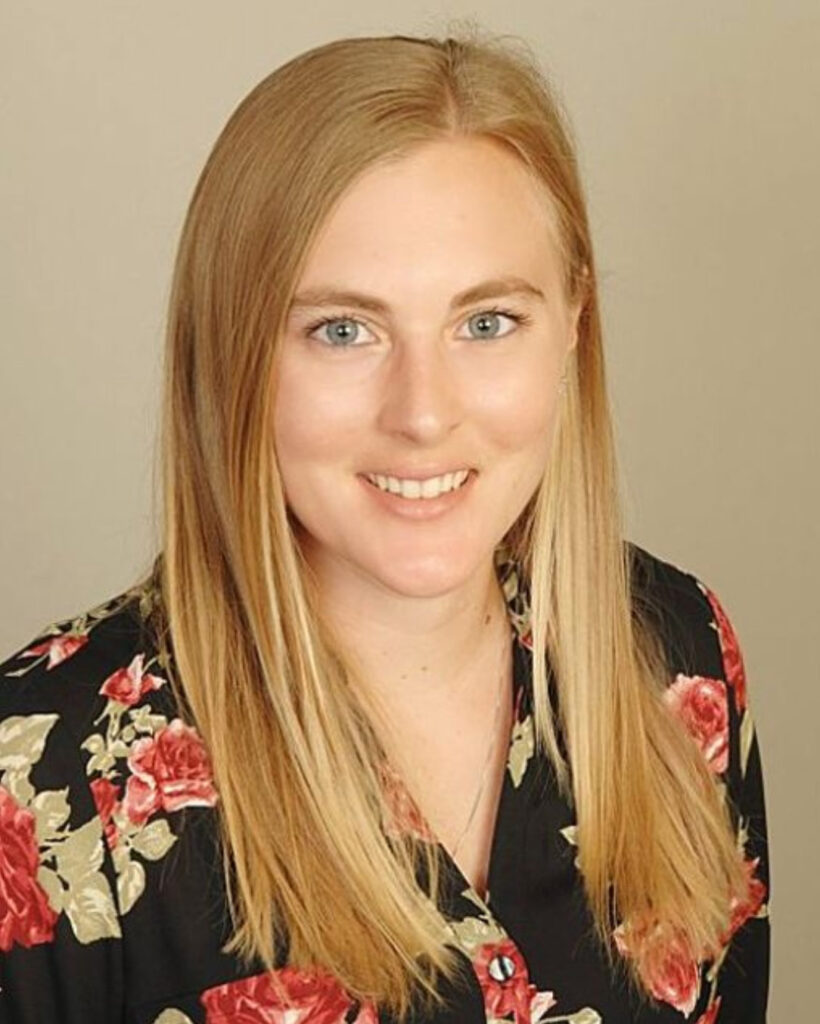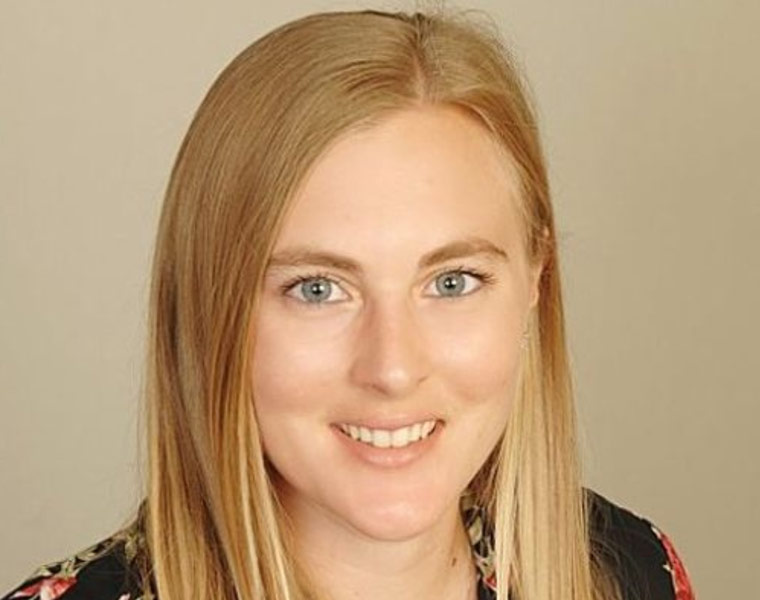
Lydia Kisley didn’t always want to be a scientist. Now the Warren E. Rupp Assistant Professor in the Departments of Physics and Chemistry, Kisley once considered a career in music education, having considered band to be her favorite subject in high school.
“I didn’t even take physics in high school,” she said. “And I threw my chemistry binder in the trash.”
Things changed for the Cleveland-area native when she had the opportunity to participate in a program at Case Western Reserve University that gave high school students the chance to explore potential career paths. During this experience, Kisley spent time in a pathology laboratory at the School of Medicine with a mentor who immediately included her in their work.
After seeing the impact she could make with science firsthand, Kisley went on to study chemistry and physics as an undergraduate, received her PhD in chemistry from Rice University in 2015 and then made her way to the University of Illinois at Urbana-Champaign as a postdoctoral fellow. By 2017, she was recognized as one of the “brightest, young innovators and game changers” by Forbes 30 under 30 and in 2019, she made her way back to Cleveland to join CWRU as an assistant professor.
Now, Kisley has been awarded a $1.9 million NIH grant for a project focusing on the “super-resolution fluorescence imaging of extracellular environments.” Through the project, she and her team will image proteins in the biophysical environment outside of the cell—an area that has been under explored, as biophysicists have focused on the inside of the cell—with super-resolution microscopy. With an interdisciplinary approach, this research will impact and involve multiple areas of study, including physics, chemistry, biology, biomedical engineering and materials science.
“It’s a dream to have the chance to bring people to Cleveland to do research,” Kisley said.
In addition to the awards she’s received and research she’s conducted, Kisely is continuously recognized for her mentoring of both graduate and undergraduate students.
“It’s the right thing to do,” she said of serving as a mentor. “Making sure everyone feels welcome in physics, and science over all. I want to continue passing on the experiences I had that got me interested in science, especially to other women and underrepresented groups of people.”
Learn more about Kisley from her responses to this week’s 5 questions.
1. What’s the most thought-provoking class you’ve ever taken?
Quantum Chemistry. It’s just a different way to view the world and the way we describe things. It shifted my mindset about how I think about the world around me, and the history aspect of it is also fun.
2. Where is the best place to spend a day in Cleveland?
By the lake if it’s a warm day, or even when it’s a cold day. Spending time on the beach or by the lake is a good break away from screens.
3. How do you like to start your day?
Hitting the snooze button four times probably and then looking forward to my first cup of coffee. I’m not a morning person.
4. What is the best advice you ever received?
“Go get a beer!” During my PhD research, I was meeting with my advisor too much to talk about an experiment I was worried about. She gave me that somewhat frank advice during a meeting, maybe just so I would stop bugging her about it, but also to tell me to stop overthinking it. So, I think about that advice when I go to [the Jolly Scholar] with my colleagues or leave work to go hang out with friends—sometimes that is a better way to spend my time instead of overthinking a problem or overworking on a project. The same problem will be there the next day and maybe I’ll even figure out when my brain isn’t as focused on it or when I’m chatting with my colleagues!
5. What’s your favorite thing about Case Western Reserve?
The people. It makes life easier that the people are friendly here. I also like the radio station here as well—WRUW 91.1. I think their tagline is “All the music, none of the hits.”

